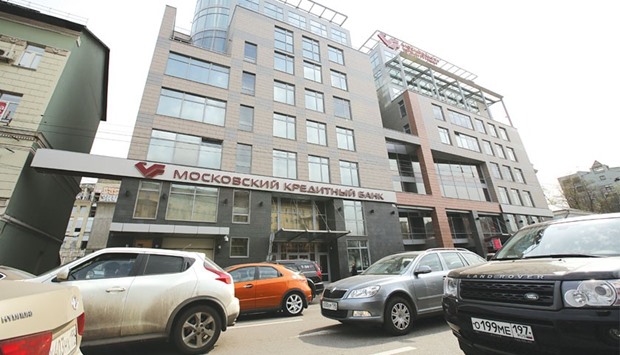The only Russian bank to announce plans to sell Eurobonds this year has shelved the idea after sliding oil prices spurred borrowing costs.
Credit Bank of Moscow, which indicated in December it was seeking to issue five-year dollar-denominated bonds in the first quarter, now sees the sale as “very unlikely,” said Eric de Beauchamp, the senior vice president. The bank was eyeing its first Eurobond since 2013 to partly refinance $500mn of November 2018 notes, the best performers among peers last year, before yields climbed almost 3 percentage points in less than two months.
Russian corporate bonds were swept up in a broader selloff in emerging markets this year amid a deepening slowdown in China, Russia’s biggest trading partner, while a commodity-price slump and first US interest-rate increase in almost a decade reined in appetite for riskier debt. The ruble tumbled to a record last month as oil, the country’s main export earner, slid to 12-year lows.
“The situation has clearly worsened from the beginning of 2016, both in Russia and worldwide, mainly because of the negative impact of a low oil price,” De Beauchamp said in an interview January 28. For Russian companies, “the Eurobond market will remain pretty much shut in the beginning of 2016,” he said.
Russian bond sales have slumped as western sanctions for the country’s annexation of Crimea almost two years ago and subsequent involvement in an insurgency in Ukraine barred many companies from international markets. If macroeconomic and geopolitical trends around Russia improve, the window can re- open quite quickly, De Beauchamp said.
Non-sanctioned companies including Gazprom, Evraz and GMK Norilsk Nickel raised $4bn from international bond sales in 2015, down from about $10bn a year earlier and more than $40bn in 2013. While investors are still ready to buy the bonds of well-known companies, they have grown more demanding amid perceptions of rising risk, said Sergey Dergachev, a senior money manager who helps oversee about $13bn of assets at Union Investment Privatfonds GmbH in Frankfurt. “Since supply from Russia has been very low, investors know that only high-quality fundamentally strong Russian issuers can easily place Eurobonds, and they need to offer a premium,” Dergachev said. “To get a deal well-placed today, you have to offer a good concession,’’ of about 30 basis points on top of yields on existing debt, he said.
Last year’s offering by Alfa Bank was “very encouraging,” according to De Beauchamp. Russia’s largest private bank raised $500mn in three-year bonds priced to yield 5%. Alfa Bank is rated BB, the second-highest non-investment grade, at Standard & Poor’s, while Credit Bank of Moscow has lower rankings from both S&P and Moody’s Investors Service.
The yield on Credit Bank’s November 2018 note fell nine basis points to 13% yesterday, recovering some of Tuesday’s 40% jump. They were at 10.87% on December 3, less than a week before De Beauchamp proposed this year’s offering. Losses of 2.9% this year compare with 2015’s return of 85%, the second-best performance among emerging-market corporate bonds worldwide, according to Bloomberg data.

Automobiles pass the offices of the Credit Bank of Moscow. The bank, which indicated in December it was seeking to issue five-year dollar-denominated bonds in the first quarter, now sees the sale as u201cvery unlikelyu201d.
